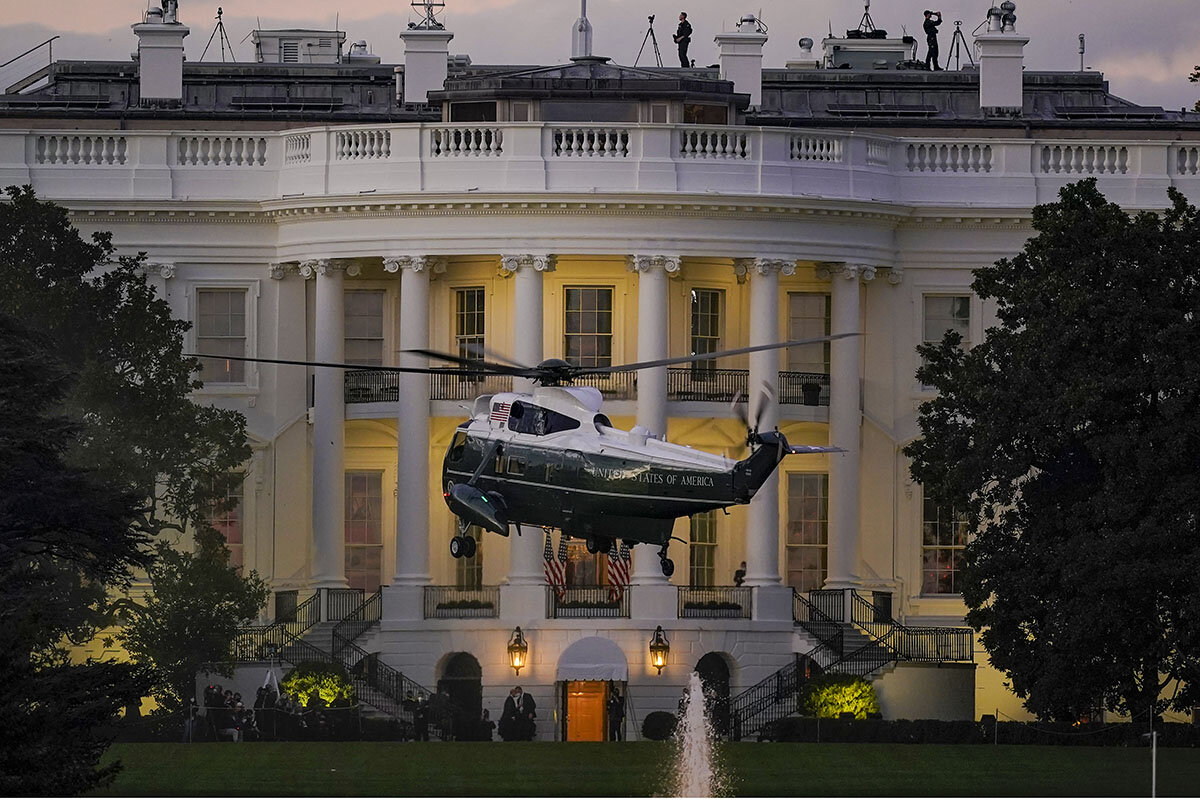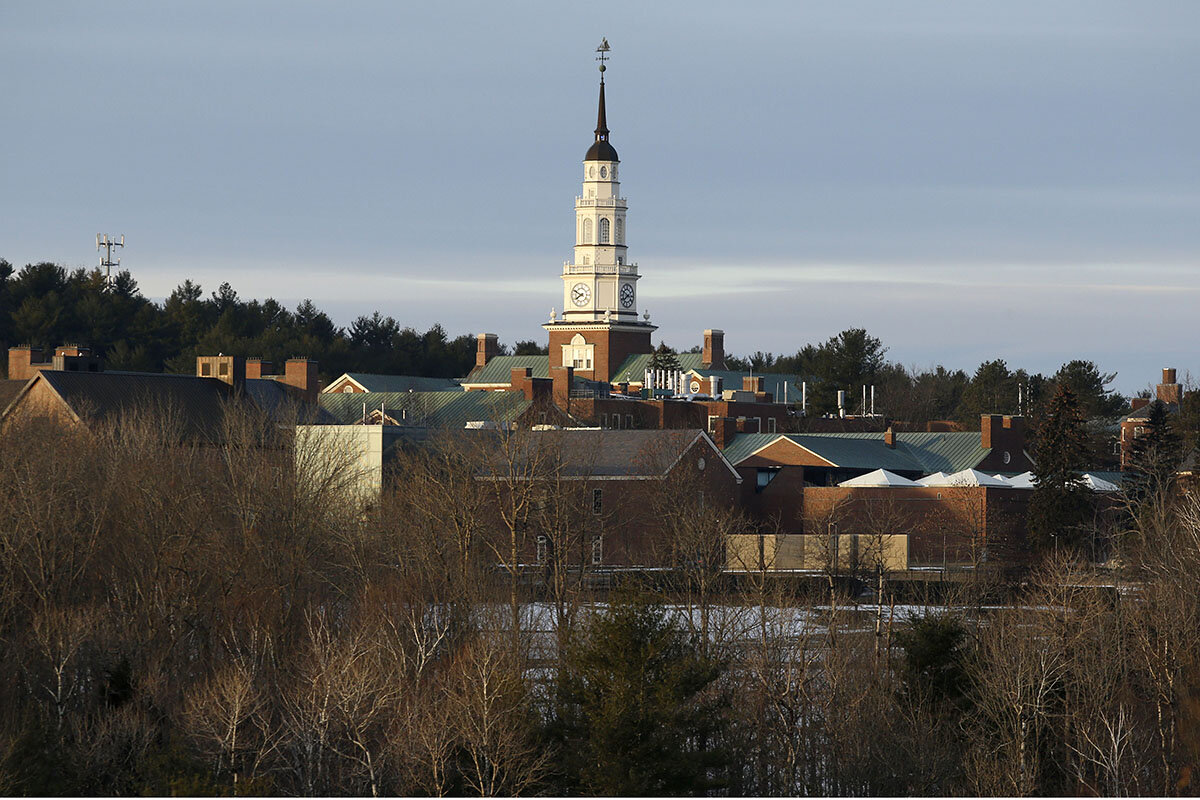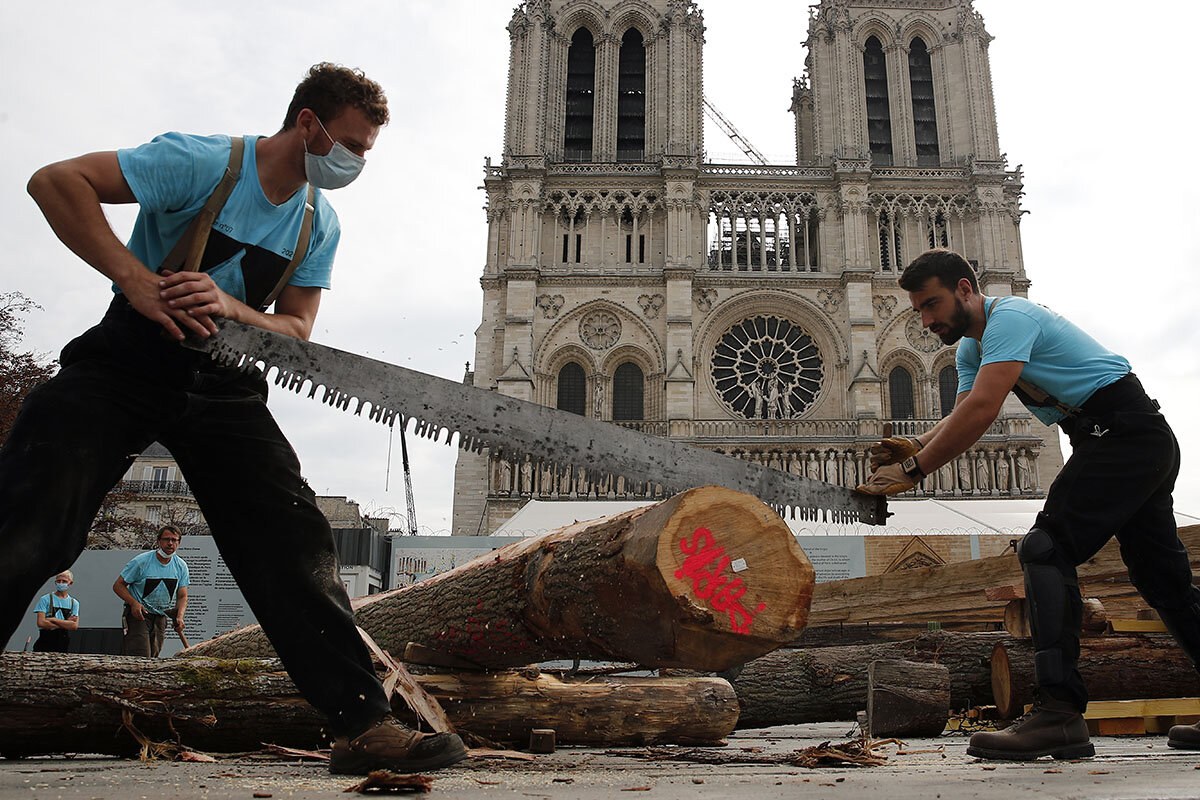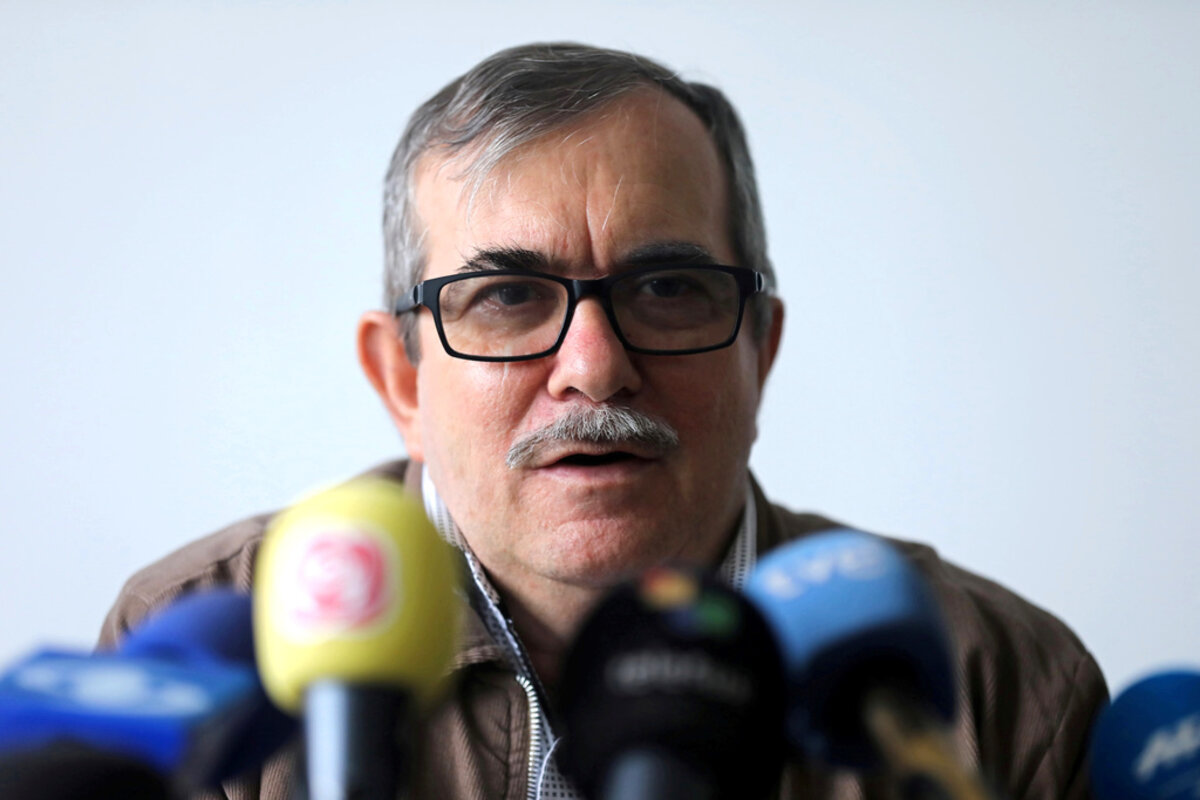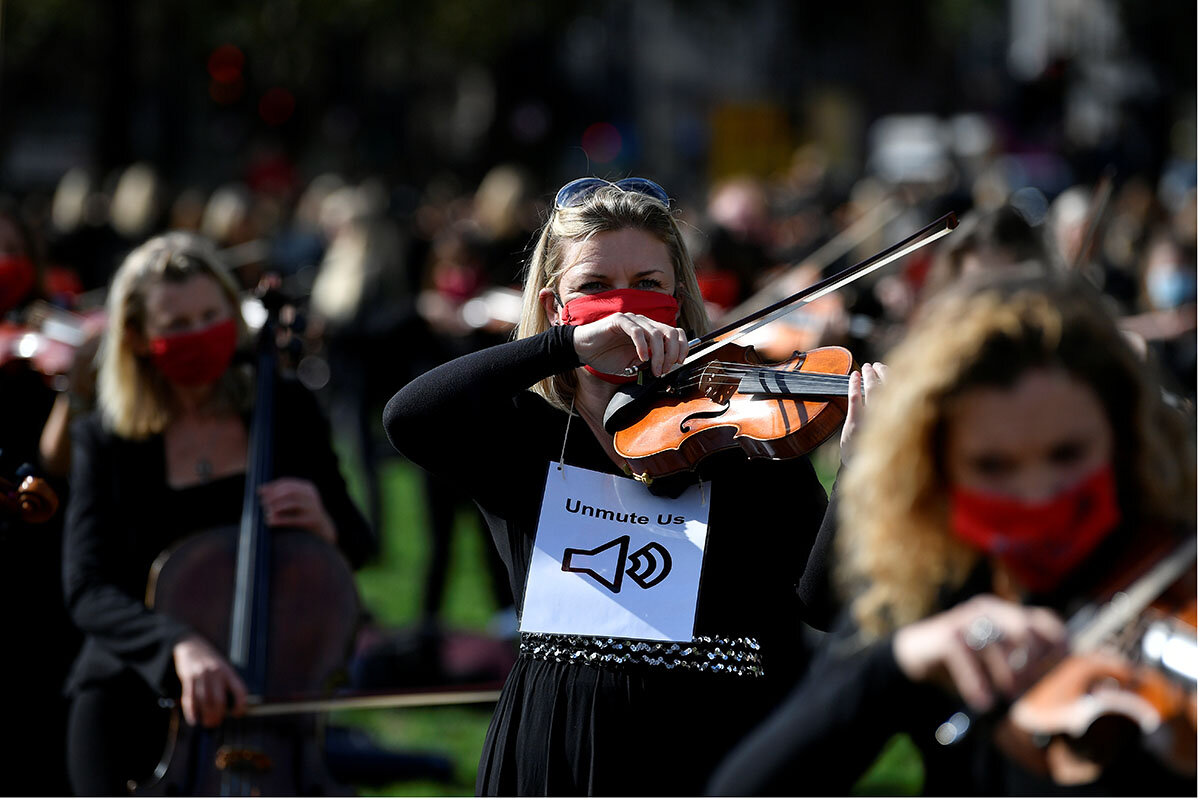As the world tried to understand the seriousness of President Trump’s condition last weekend, his record of false and misleading claims added to the uncertainty.
Monitor Daily Podcast
- Follow us:
- Apple Podcasts
- Spotify
- RSS Feed
- Download
 Mark Sappenfield
Mark Sappenfield
At the end of a remarkable few days, it’s worthwhile to look back. After a weekend in which President Donald Trump was hospitalized with the coronavirus, followed by confused and contradictory reports and now a return to the White House, what are we to take away?
Below, you’ll see Linda Feldmann’s article on how the situation could reflect on the administration’s transparency. But it’s also worth noting that, for Mr. Trump himself, very little seems to have changed. Most obviously, he’s doubled down in saying that concerns about the coronavirus are overstated. In a tweet, he suggested incorrectly that “sometimes over 100,000” people die from the flu every year. “Are we going to close down our Country?” he asked. “No.” He conspicuously took off his mask the moment he arrived at the White House.
By contrast, after British Prime Minister Boris Johnson recovered from the coronavirus, his tone and demeanor changed. The hardness of his stances on Brexit and the National Health Service shifted to humility, gratitude, and empathy. “All of his thoughts are with those affected by this illness,” his office said. For a time, at least, his polling numbers shot upward.
If anything, political lines in the United States seem to be set more firmly now. As supporters praise Mr. Trump’s return to work, critics are outraged by a mindset they say endangers the nation and those around him. In hyperpolarized times, it seems, “October surprises” are surprising only in revealing how little even the most extraordinary events can change.




